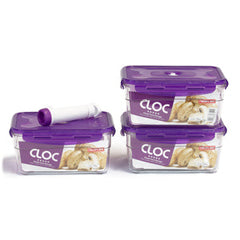Cauliflower is one of the most popular vegetables in Middle Eastern cuisine, and it is considered not only delicious but also a vegetable with significant health benefits. Whether it's in a salad, soup, baked in the oven, or even as a cauliflower-based pizza, the options are endless. However, aside from its taste and culinary variety, cauliflower contains essential nutrients for our health. Here are six key health benefits that make cauliflower a perfect addition to your daily diet.
For creative recipes, click here
1. Rich in Antioxidants That Strengthen the Immune System
Cauliflower is rich in powerful antioxidants, including vitamin C, vitamin K, beta-carotene, quercetin, kaempferol, and folic acid. These antioxidants help protect body cells from damage caused by free radicals and strengthen the immune system. 100 grams of fresh cauliflower provides about 80% of the recommended daily intake of vitamin C, making it an excellent choice to boost the body's natural defence against diseases and inflammation.
One of the most important active compounds in cauliflower is sulforaphane, a sulphur-containing compound created when the vegetable is chewed or processed. Sulforaphane is known for its anti-inflammatory and antioxidant benefits, and numerous studies point to its ability to strengthen the immune system, activate enzymes that neutralise toxins in the body, and protect cells from various types of damage.
In addition, cauliflower contains other sulphur-containing compounds called glucosinolates, which break down into active compounds with anti-cancer properties. These substances help neutralise certain toxins and reduce inflammation in the body, which contributes to strengthening the immune system and protecting against various diseases.
2. Low in Calories and Rich in Dietary Fiber
One of cauliflower’s standout benefits is its low-calorie content relative to its high nutritional value. One cup of chopped cauliflower (about 100 grams) contains only 25 calories but provides about 3 grams of dietary fibre. Dietary fibre is essential for healthy digestion, helps with long-lasting satiety, and regulates blood sugar levels.
Due to its low-calorie content and high fibre content, cauliflower is an excellent ingredient for those trying to lose weight or maintain a healthy weight. You can eat relatively large amounts of cauliflower without exceeding your daily calorie limit, and the fibre it contains helps with fullness and preventing overeating.
3. Supports Digestive Health
The dietary fibre in cauliflower significantly contributes to digestive health. Cauliflower contains both soluble and insoluble fibres, which aid in the movement of food through the digestive system and prevent constipation. Additionally, the soluble fibres in cauliflower nourish beneficial gut bacteria (probiotics), improving the composition of the gut microbiome and contributing to digestive health.
Studies show that a fibre-rich diet, including the fibre found in cauliflower, may reduce the risk of inflammatory bowel diseases, irritable bowel syndrome (IBS), and even colon cancer. Cauliflower also contains a high amount of water, which helps maintain moisture in the digestive system and contributes to its proper functioning.
4. Improves Heart and Blood Vessel Health
Cauliflower contains several components that contribute to heart and blood vessel health. The dietary fibre in cauliflower helps reduce levels of "bad" cholesterol (LDL) in the blood, thereby reducing the risk of heart disease. Additionally, cauliflower is rich in potassium, a mineral essential for regulating blood pressure and ensuring proper heart function.
Anti-inflammatory and antioxidant compounds in cauliflower help reduce chronic inflammation in the body, which is a known risk factor for heart disease. Studies have found a connection between the regular consumption of cruciferous vegetables, such as cauliflower, and a reduced risk of cardiovascular disease.
5. Contains Compounds That Help Prevent Cancer
One of cauliflower’s most significant advantages is its potential to help prevent cancer. Like other cruciferous vegetables, cauliflower contains compounds called isothiocyanates and indole-3-carbinol, which many studies have linked to a reduced risk of certain types of cancer.
The isothiocyanates and indoles in cauliflower work in several ways to protect against cancer: they increase the activity of enzymes that neutralise carcinogens, inhibit the growth of cancer cells, and encourage programmed cell death (apoptosis) of cancer cells.
Sulforaphane, which we mentioned earlier, is one of the most powerful anti-cancer compounds in cauliflower. Studies show it can inhibit enzymes linked to tumour development, increase the activity of carcinogen-neutralising enzymes, and encourage cancer cell death without harming healthy cells. These properties make sulforaphane a promising research compound in cancer prevention.
Epidemiological studies have shown a connection between high consumption of cruciferous vegetables, including cauliflower, and a reduced risk of lung, colorectal, breast, ovarian, bladder, and prostate cancer. This is another important reason to incorporate cauliflower into your regular diet.
6. Good for Brain and Nerve Health
Cauliflower contains nutrients essential for the healthy functioning of the brain and nervous system. It is rich in choline, a nutrient critical for brain development, memory, and communication between nerve cells. Choline also serves as a component in building cell membranes and transmitting nerve signals.
Additionally, cauliflower contains vitamin K and folate (vitamin B), which have been linked to improved cognitive function and a reduced risk of degenerative diseases like dementia and Alzheimer’s. Folate is particularly important for the proper development of the nervous system in foetuses, making cauliflower a recommended food for pregnant women.
The antioxidant and anti-inflammatory properties of cauliflower also help protect brain cells from oxidative and inflammatory damage, which may contribute to the development of degenerative brain diseases. A study published in Neurology showed that high consumption of cruciferous vegetables is linked to a slower rate of cognitive decline in adults.
How to Include Cauliflower in Your Daily Diet
There are many ways to enjoy the health benefits of cauliflower:
- Steaming or baking – These cooking methods preserve most of the nutritional value.
- As a rice substitute – Cauliflower rice is a low-carb alternative to regular rice.
- In salads – Raw, finely chopped cauliflower adds a crunchy texture to salads.
- As a component in vegetable patties or fritters.
- In soups – It adds thickness and nutritional richness.
- As a potato substitute – Cauliflower mash is a low-calorie alternative to mashed potatoes.
Summary
Cauliflower is an incredibly nutritious vegetable that offers a wide range of health benefits – from boosting the immune system and improving heart health to reducing cancer risk and supporting brain health. Due to its low-calorie content and high nutritional value, cauliflower is an excellent addition to any balanced diet.
Regular incorporation of cauliflower into your diet can significantly contribute to overall health and well-being. If you haven’t yet made cauliflower a regular part of your diet, now is the time to start and enjoy all the health benefits this wonderful vegetable has to offer.















